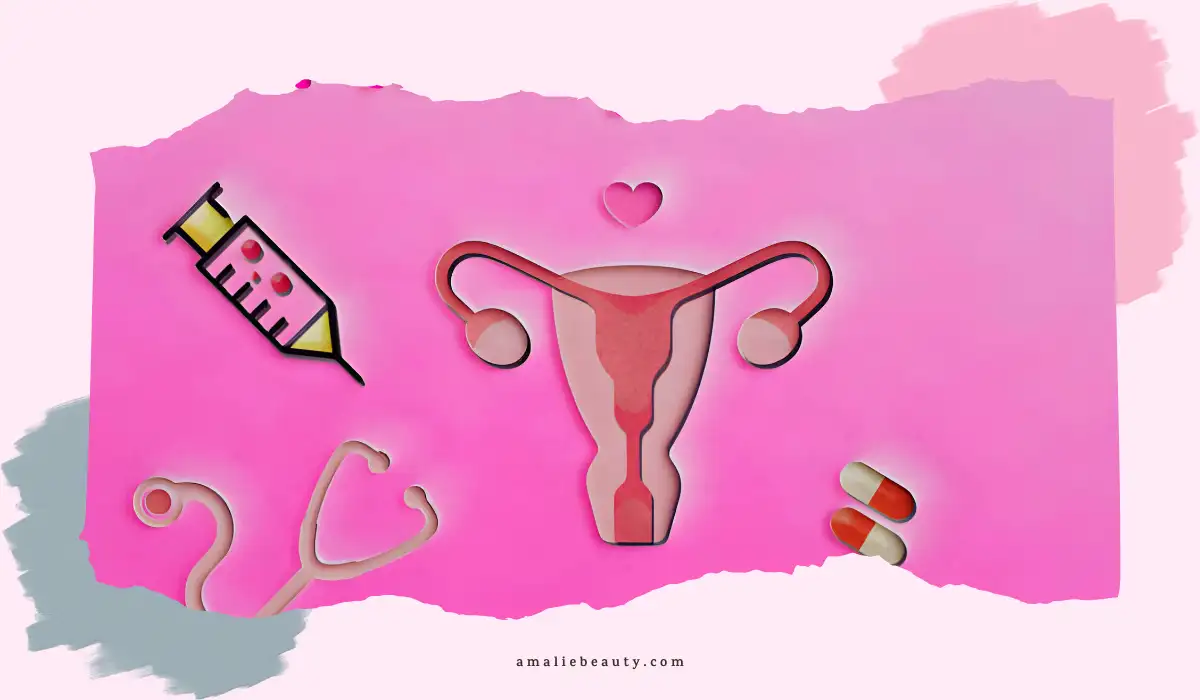So, what is menopause? Every woman experiences the menopause as a normal part of aging. Technically, menopause occurs when a woman has not had her period for 12 consecutive months.
The years leading up to this point are called perimenopause. This transitional time brings physical and emotional changes that can impact daily life. Knowing what to expect and practicing self-care can help women feel their best during menopause.
What are the symptoms of menopause?

Women may experience hot flashes, night sweats, vaginal dryness, trouble sleeping, mood changes, and more. Hormone levels fluctuate and eventually decline.
This affects the menstrual cycle and leads to menopause when periods stop completely. Every woman’s experience is unique. The duration and severity of symptoms varies. Lifestyle choices, medical history, genetics, and other factors play a role too.
The good news is that there are many effective menopause treatments and self-care tips to help women manage symptoms. With a proactive approach focused on health and well-being, women can thrive during the menopause transition and beyond.
10 Best Menopause Care Tips
Here are 10 self-care menopause care tips to help women feel their best during menopause.
1. Keep cool to reduce hot flashes
Hot flashes are perhaps the most infamous symptom. To help prevent them, keep your ambient temperature cool. Run fans, open windows, layer loose clothing, have a cold drink, and avoid spicy foods and hot beverages. When a hot flash strikes, slow breathing can calm symptoms faster.
2. Combat vaginal dryness and discomfort
Declining estrogen affects tissues in the vagina, often leading to dryness, irritation, inflammation, or pain. Use a vaginal lubricant or moisturizer to make intimacy more comfortable. Stay sexually active to increase blood flow and stimulate lubrication when possible.
3. Achieve better sleep
Insomnia and night sweats that soak the sheets are common culprits behind menopause sleep disturbances. To promote higher quality sleep, keep your room cooler and try breathable moisture-wicking bedding.
Limit liquids before bedtime to reduce mid-night bathroom runs. Turn off electronics and establish calming pre-bedtime rituals like baths, light yoga stretches, or meditation.
4. Balance your mood
Hormonal fluctuations during menopause can trigger mood changes, like irritability, anxiety, or sadness. Be patient with yourself and communicate how you feel to loved ones so they understand what you’re going through.
Combat low moods by spending time outdoors, trying new hobbies, practicing mindfulness, and connecting face-to-face with supportive friends.
5. Strengthen your bones
Lower estrogen levels lead to accelerated bone loss. Weight-bearing exercise stimulates bone-building cells to help counteract this. Aim for 30 minutes per day most days of the week. Walking, jogging, dancing and strength training are all great options. Be sure to get enough calcium and vitamin D too.
6. Identify treatment options
If menopause symptoms disrupt daily activities, don’t hesitate to explore treatment options. Hormone therapy and certain medications can provide relief when lifestyle measures aren’t enough. Connect with healthcare providers to determine what solutions are appropriate for your unique needs.
7. Rejuvenate intimate skin
Menopause can cause thinning and dryness in the vaginal area. Pamper this delicate skin with vaginal moisturizers and lubricants. Avoid soap-based cleansers. Stick to gentle options intended for sensitive skin. Reduce irritation from chafing by wearing cotton underwear and loose clothing too.
8. Stay active and elevate your heart health
Weight gain and adverse cholesterol changes are common during menopause. Fortunately, regular exercise can help minimize these effects. As little as 30 minutes of moderate activity most days combats troublesome menopause symptoms as well as keeping your ticker in top shape.
9. Healthy nutrition supports well-being
Fuel your body with nutrient-dense whole foods. Limit processed items high in sugar and unhealthy fats. Stay hydrated by sipping water throughout the day. Curb cravings and energy slumps with balanced meals and healthy snacks like fresh fruit, nuts, and yogurt.
10. Reduce stress however possible
Stress can magnify menopause symptoms. Unfortunately, some sources of stress like career pressures or caring for aging parents are unavoidable. However, minimizing unnecessary tension can provide huge quality of life benefits.
Try relaxing activities like yoga, deep breathing, gardening, and meditation. Say no to obligations that drain you. Make rest and self-care priorities right now.
Conclusion
Menopause marks the end of a woman’s reproductive years. The transition brings physical and emotional changes as the body adapts to shifting hormone levels. For most women, menopause symptoms peak during perimenopause in the months or years leading up to the final period.
Lifestyle strategies and menopause treatments that really work can provide symptom relief. Every woman has a unique experience based on health status, genetics, and other factors. It may require some trial and error to determine the most effective self-care tips for your situation.
When symptoms are well-managed, menopause can be an opportunity to slow down and focus on personal goals. How will you enjoy your freedom from periods and the ability to live spontaneously, travel more, and pursue new passions? The future is yours to create.
With a positive mindset and proactive self-care, most women can feel empowered and inspired to thrive during menopause and the years that follow. What tips will you try first to reduce symptoms so you can be your best self?
References
- Hall JE. (2020). Endocrinology of the menopause.
https://www.ncbi.nlm.nih.gov/pmc/articles/PMC6983294/ - Mohammady M, et al. (2018). Effect of omega-3 supplements on vasomotor symptoms in menopausal women: A systematic review and meta-analysis.
https://pubmed.ncbi.nlm.nih.gov/30056356/ - Food and Drug Administration. (2018). FDA permits marketing of a diagnostic test toaid in the determination of menopausal status [Press release].
https://www.fda.gov/NewsEvents/Newsroom/PressAnnouncements/ucm624284.htm

